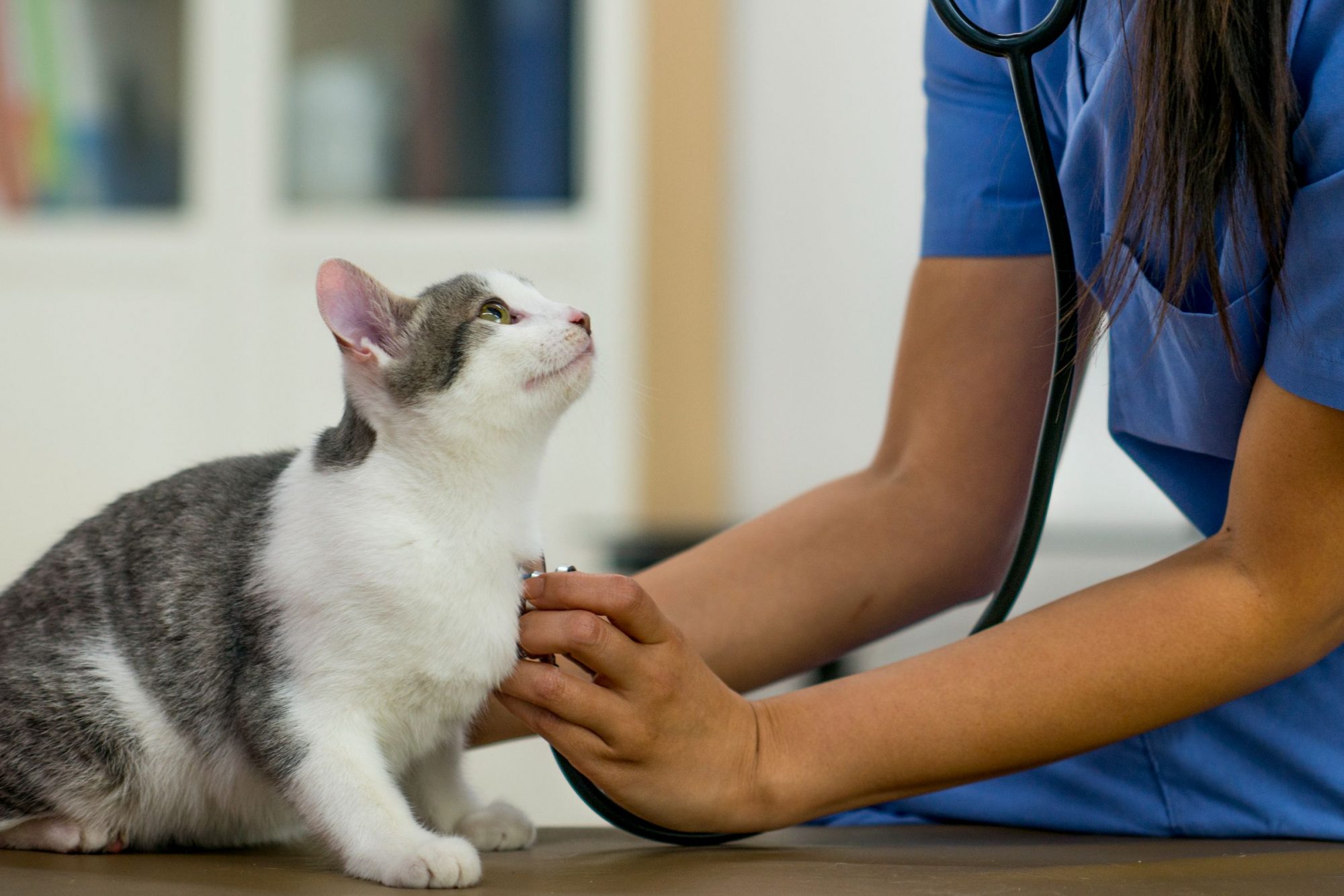Our Blog
Keep Pets Safe in the Heat

High temps can be hard for pets to tolerate, especially seniors, overweight pets, and those with certain medical conditions. Dog breeds with flat faces, such as pugs and bulldogs, are also at a higher risk of heat-related illness, as are snub-nosed cats like Persians and Himalayans.
Continue…Why is My Dog Shaking So Much?

Dog trembling or quivering is often associated with small breeds, like chihuahuas, but dogs of any size can experience the shivers and shakes. Many things can cause shaking or trembling in dogs.
Sometimes the culprit is obvious. Is your small dog shaking because he’s cold or happy to see you? Those are easy fixes. But if your dog suddenly starts to tremble for no apparent reason, it’s important to contact your veterinarian to rule out the possibility that an illness or injury is to blame.
Does your dog shiver or tremble? If so, read on for potential causes. The team at Bayside Animal Hospital is here to help you understand why your favorite canine companion is shaking or trembling and what you can do to help your four-legged friend.
Continue…Should I Get a Puppy Companion for an Older Dog?

Your senior dog has been your loving companion for years, and if he’s slowing down and staying closer to home, it’s natural to want him to have a friend by his side.
At Bayside Animal Hospital, we love providing expert dog and puppy care, plus senior pet care, to help pets stay healthy and active throughout their lives. If you’re thinking of getting a puppy with an older dog, our team has some helpful hints for making the best decision for your aging pet.
Continue…What Can I Do for My Dog During Firecracker Noise?
Slow it Down Chowhound: My Puppy Eats Too Fast!

Puppies are furry little bundles of energy that live life with gusto, whether they’re playing fetch, pouncing through the park, or licking the face of their favorite human. But when they attack their food bowl with the same fervor, it can be bad for their health.
At Bayside Animal Hospital, we love caring for your cuddly new additions and offering you advice on all aspects of puppy parenting. If you’ve got a dog eating fast, we’ve got tips to help you tame this bad habit.
Continue…Coughing Cat: Hairball or More?

Cleaning up the occasional hairball is par for the course when it comes to taking care of cats. And for the most part, hairballs are nothing to worry about. But how do you know if your coughing cat has a harmless hairball or some other more serious medical condition?
At Bayside Animal Hospital, we love keeping your cats healthy with routine wellness visits and treatments for illnesses when you need them. We’re happy to help demystify the reasons why your cat might cough and how to know when a call to the veterinarian is warranted.
Continue…Microchip Your Pet: It’s Quick, Easy, and Essential

It could happen when you least expect it. You’re walking your dog on his favorite trail and he somehow slips out of his collar to chase a squirrel. Or your curious kitty dashes past you through an open door when your arms are full of groceries. Becoming separated from a pet is a pet parent’s worst nightmare, and it happens about 10 million times each year in the United States. Collars with ID tags—while very much necessary—can break or fall off, leaving your pet without proper pet identification.
Continue…Do I Really Have to Bring My Cat to the Vet?

Because cats put up such a fight regarding their travel kennel, the car, and being poked and prodded by strangers, they don’t always receive preventative veterinary care that could influence their quality and quantity of life. Bringing your cat to the vet can be trying in the best of times…and almost impossible in the worst. By establishing a pattern of positive, rewarding veterinary visits once or twice a year (depending on your cat’s age and medical history), you’re able to achieve and maintain optimal feline health.
Continue…Quirky Cat Behavior and Why Your Cat Kneads You

There are many wonderful things about cat ownership. These interesting little creatures never fail to bring unconditional love and some pretty entertaining habits to the table. Perhaps our favorite quirky cat behavior at Bayside Animal Hospital is when kitties make biscuits. While it is a pretty cute habit, it might be one that leaves you confused. Read on to shed some light on the mystery of this quirky cat behavior.
Continue…Compulsive Pet Behaviors: Licking, Biting, and Scratching in Dogs

When it comes to mental illness, the pet population is not immune. Our animals can be affected by anxiety and other problems that can manifest in many ways. Compulsive pet behaviors are a common mental health concern that we see at Bayside Animal Hospital. Whether it be excessive licking, biting, chewing, or something else, there is no need for you and your pet to suffer.
Continue…


